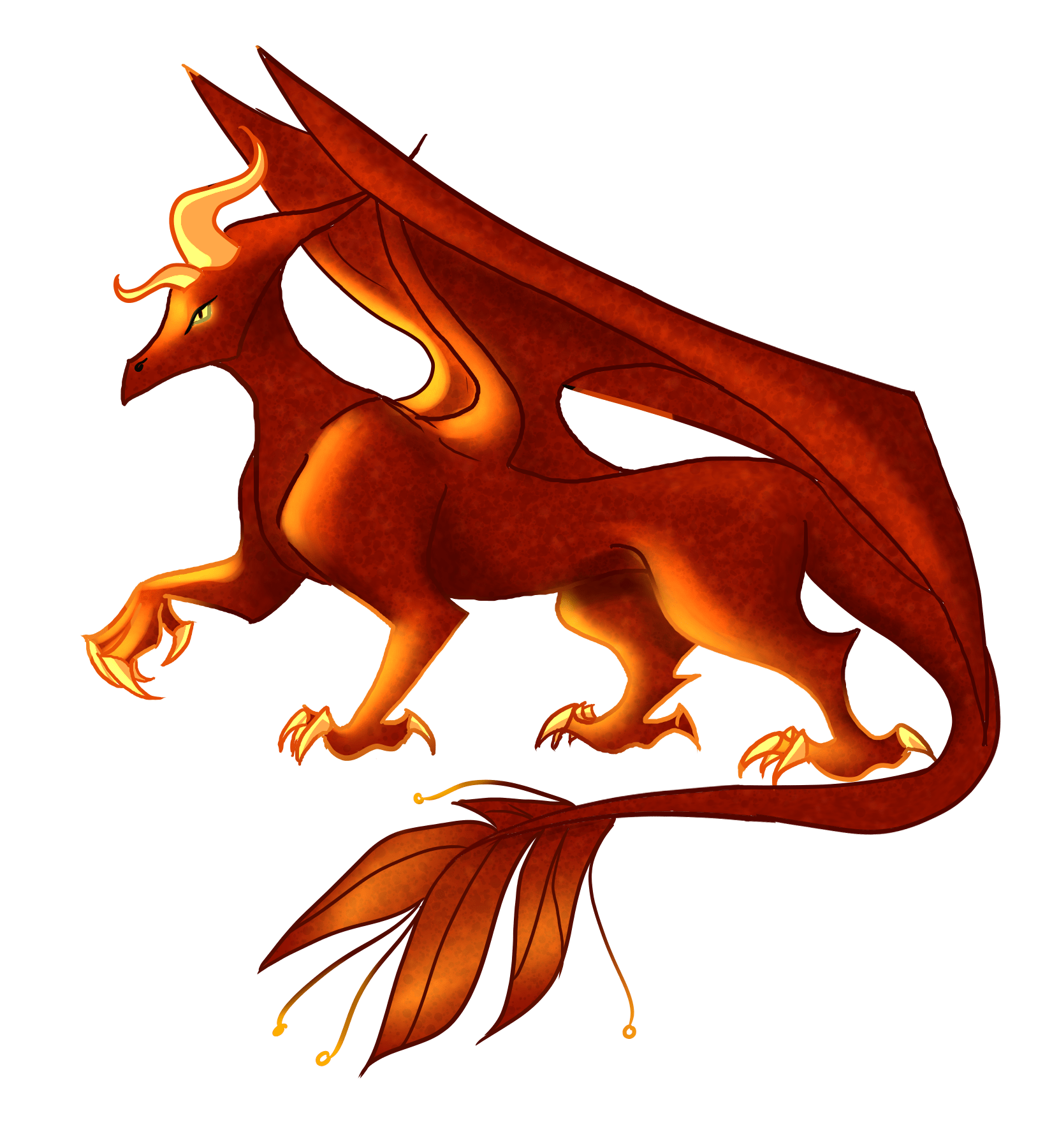Dragon
Dragons are extremely intelligent, usually solitary creatures. The species as a whole is extremely genetically diverse can be found in almost every type of habitat in Nativis, including the Abyssal Plane.
Basic Information
Anatomy
Dragons are quadrupedal creatures with a layer of scales over most if not all of their body. Most possess wings, and some posses large enough wings to fly. A specialized chamber behind the nasal cavity secretes a mixture of chemicals that can be forced out through the mouth. The composition of chemicals depends primarily on the dragon's diet and can vary from being extremely flammable to poisonous.
Scales, which are made primarily of keratin and minerals in the dragon's diet, can vary widely in color from darker colors like black or brown to lighter colors like red, blue, or even white.
Genetics and Reproduction
The genetics of dragons vary greatly. This natural diversity and speciation has led to a vast number of different types of dragons throughout Nativis.
Growth Rate & Stages
Dragons live for extremely long periods of time, and don't reproduce often. Dragons are oviparous and the gestation period can last 10-13 months. Immature dragons are usually cared for by their mother until maturity, which is usually 3 - 5 years. Immature dragons reside in and near the mother's nest for the majority of their development. Dragon nests are rarely ever found. According to the Codex of The Two Storywriters, Sycta calls dragons back to her garden to lay their eggs and raise their young before they return to Nativis.
A domestically raised dragon can often be tamed, but not reliably.
Dietary Needs and Habits
Most dragons are omnivorous, eating a wide variety of both plants and meat, depending mainly on the environment. They can survive for up to two weeks without eating, but will begin to actively hunt and look for food when hungry.
In addition to its regular diet, dragons will often eat various rocks and minerals. Dragons' bodies are theorized to metabolize the material and incorporates them into the scales. Dragons can also ingest poisonous plants or other chemicals without issue, and often chooses to do so. The generally accepted reason is that they also incorporate these materials into their body, particularly the chemical gland in the mouth responsible for the dragon's specialized breath.
Mythology
According to common lore and certain interpretations of Sycta's poetic explanations in the Storywriter's Codex, dragons don't have souls but when they die they become young again and go to Sycta's Garden to live until they so choose to leave. This is said to be the reason why juvenile dragons and eggs are extremely rare. As a divine creature of Sycta, dragons are also the only animals with any relationship to magic. All dragons are said to have a life force of magical energy (however, this is distinct from the human Soul in that it is purely energy, not consciousness). This energy is said to imbue the weapon that slays a dragon with a special power.Remove these ads. Join the Worldbuilders Guild











Comments